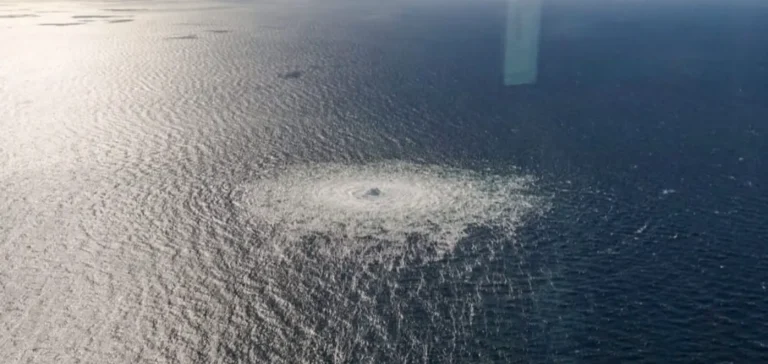A regional court in Warsaw has given itself 40 days to decide on the extradition of a Ukrainian national suspected of being involved in the explosions that damaged the Nord Stream 1 and 2 pipelines in September 2022. The man, identified as Volodymyr Z., has had his pre-trial detention extended until the court issues its ruling.
Trained as a diver, Volodymyr Z. was arrested on September 30 in a suburb of Warsaw under a European arrest warrant issued by Germany. Berlin suspects him of taking part in the sabotage of the two underwater pipelines, which connect Russia to Germany via the Baltic Sea. The German Federal Public Prosecutor states that he was part of a group that planted explosives near the island of Bornholm, off the Danish coast.
A European arrest warrant in force
According to Judge Anna Ptaszek, the case should be decided in the first instance within the 40-day legal timeframe. Meanwhile, the suspect’s lawyer, Tymoteusz Paprocki, is contesting the detention, claiming his client has been residing in Poland for over three years and holds a valid residence permit. No additional details were provided regarding Volodymyr Z.’s alleged involvement in the case.
On September 26, 2022, four successive underwater explosions caused major gas leaks on the two pipelines. At the time, gas flows through Nord Stream 1 had already been suspended by Russia, while Nord Stream 2 had never entered into service amid ongoing diplomatic tensions between Berlin and Washington.
A case with transnational implications
Three judicial investigations were opened in Germany, Sweden and Denmark following the incident. The two Nordic countries closed their investigations in 2024. The German investigation remains active and has identified a suspected cell composed of five men and one woman, all Ukrainian nationals, as the perpetrators of the sabotage.
Another Ukrainian suspect, arrested in Italy in late August, is also subject to extradition proceedings. In mid-September, an Italian judge approved his transfer to German authorities. The German Federal Public Prosecutor continues to investigate the full extent of the operation, which severely disrupted Europe’s energy supply.






















